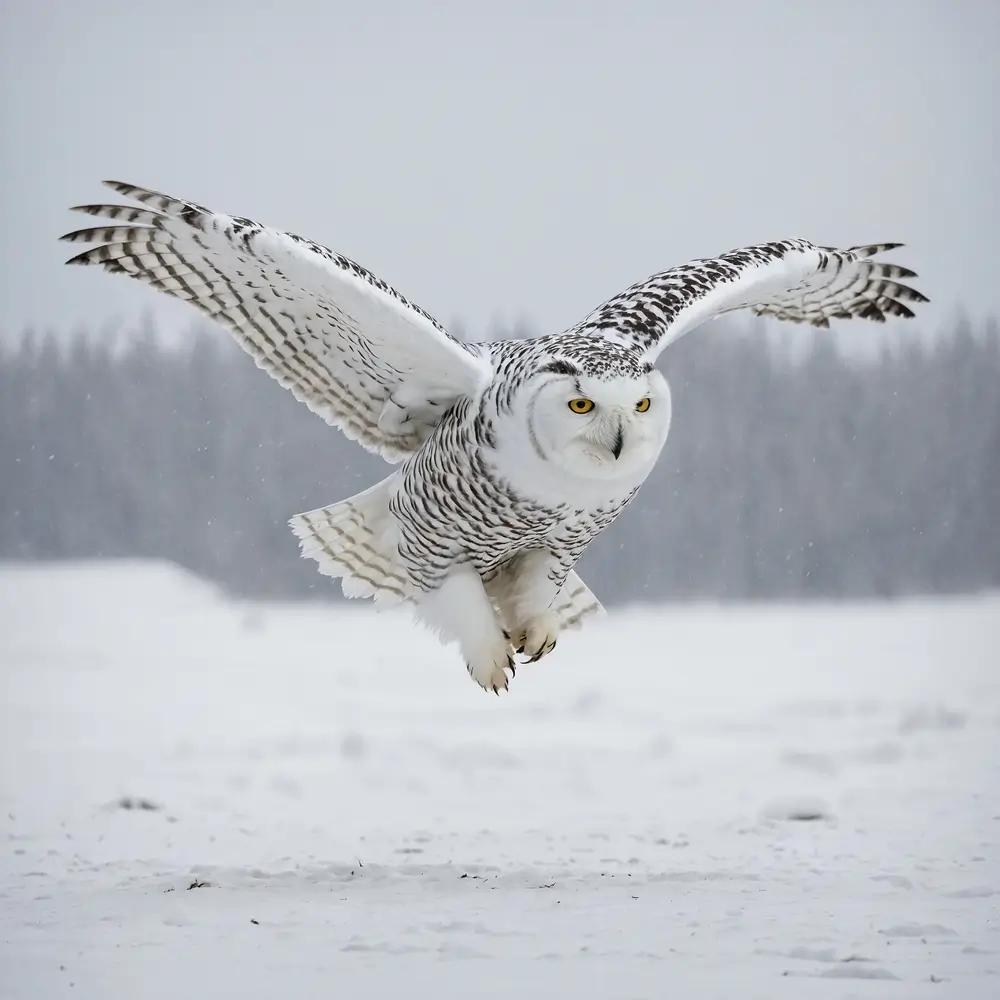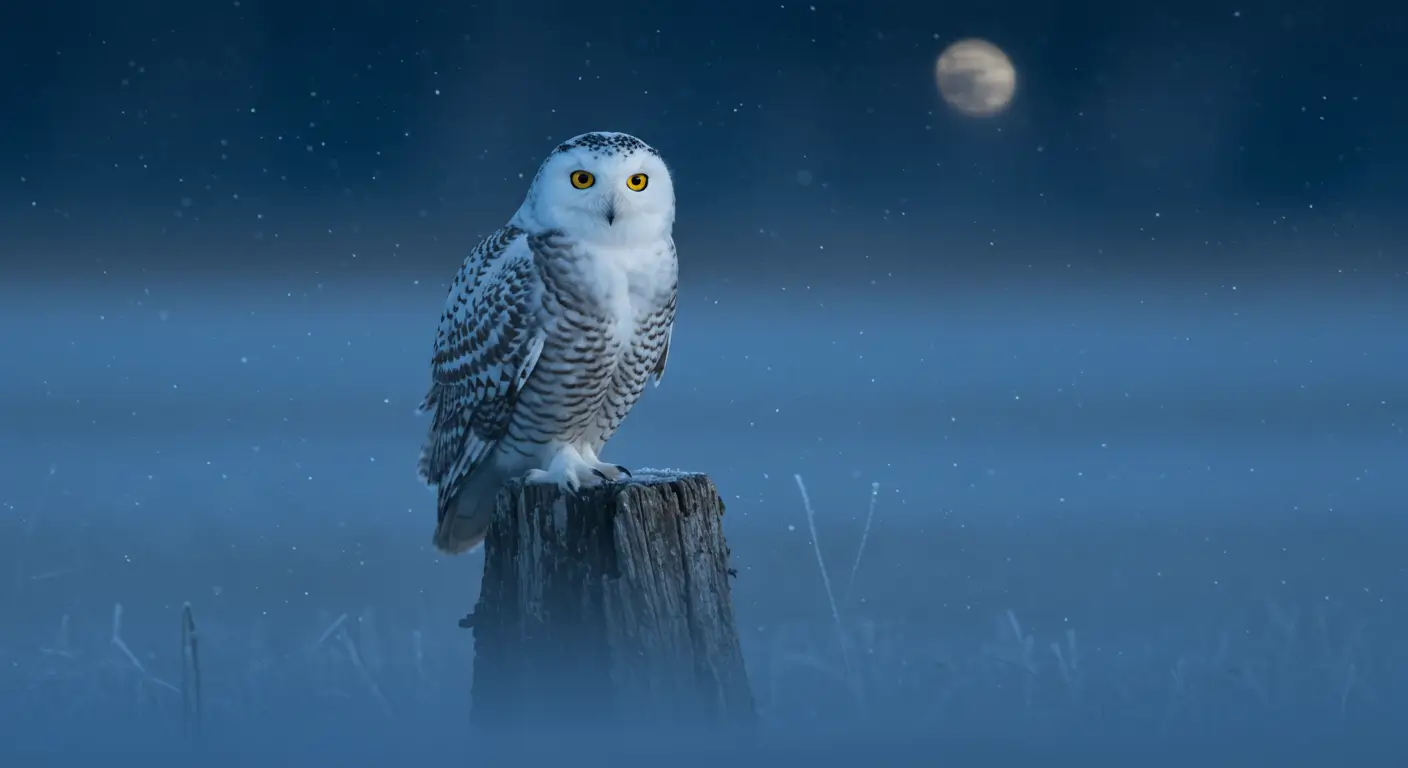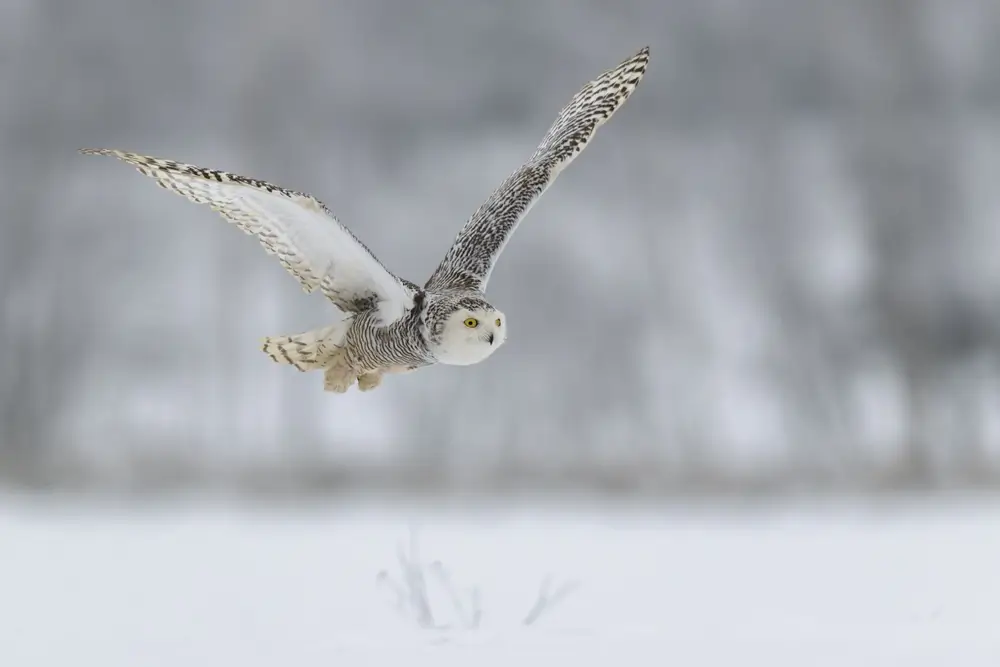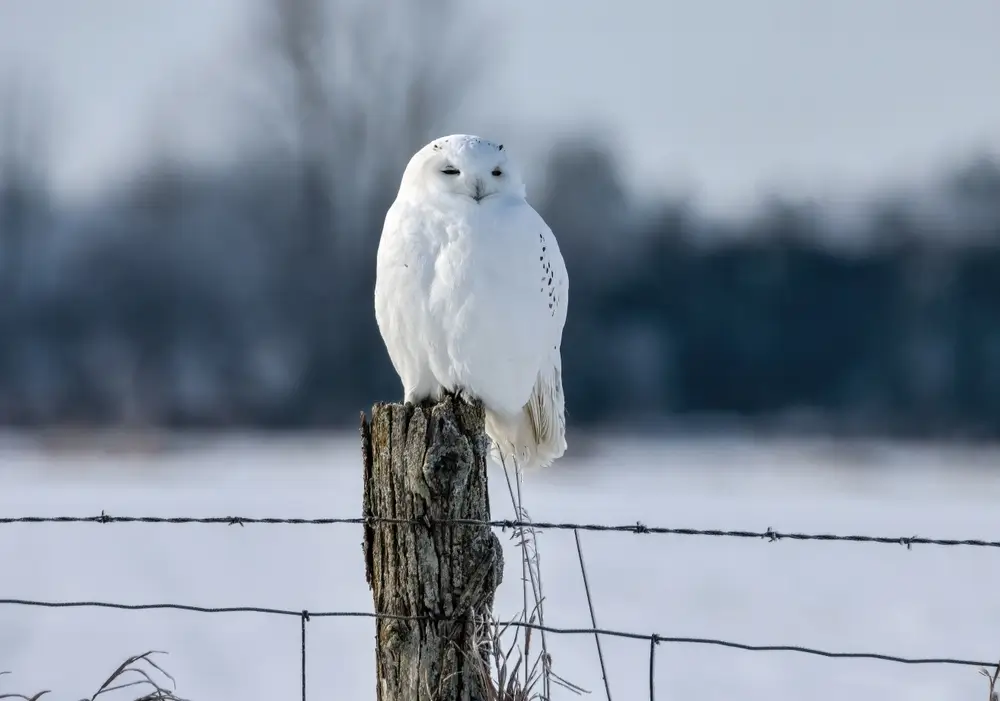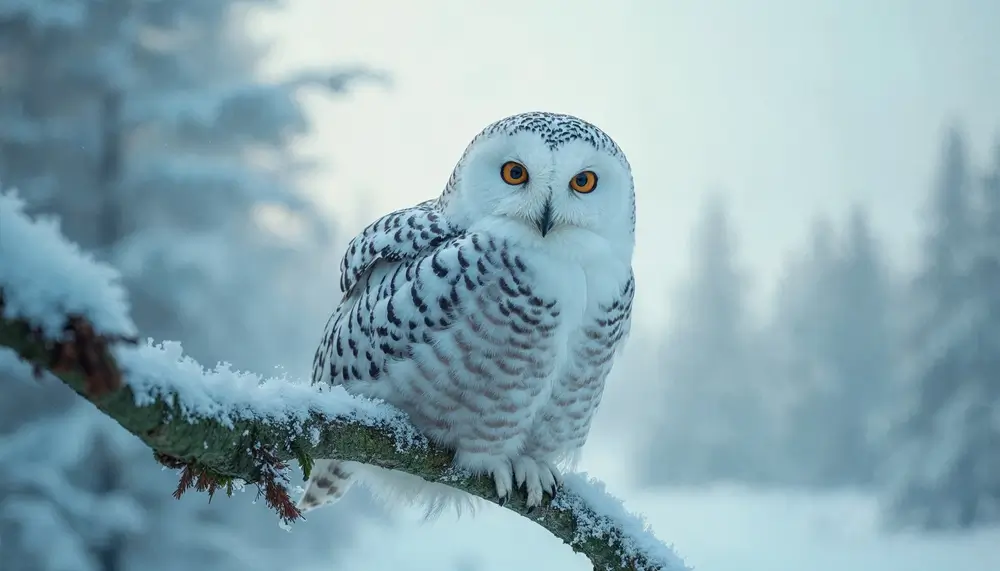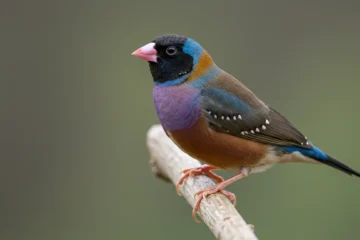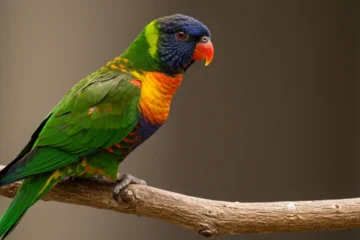The Snowy Owl is a large and white owl native to the Arctic regions of North America. It often migrates south to parts of the country during the winter season. This owl is an expert hunter and known for its striking white feathers along with piercing yellow eyes.
They mainly feed on small mammals like lemmings. It is active during the day at dawn and dusk which is an unusual behavior with respect to owl species. The Snowy Owl is a majestic sight in the American winter landscape with its silent flight and excellent vision.
Characteristics of Snowy Owl
These owls are quite different from other members of the owl family and this makes them a good attention seeking bird.
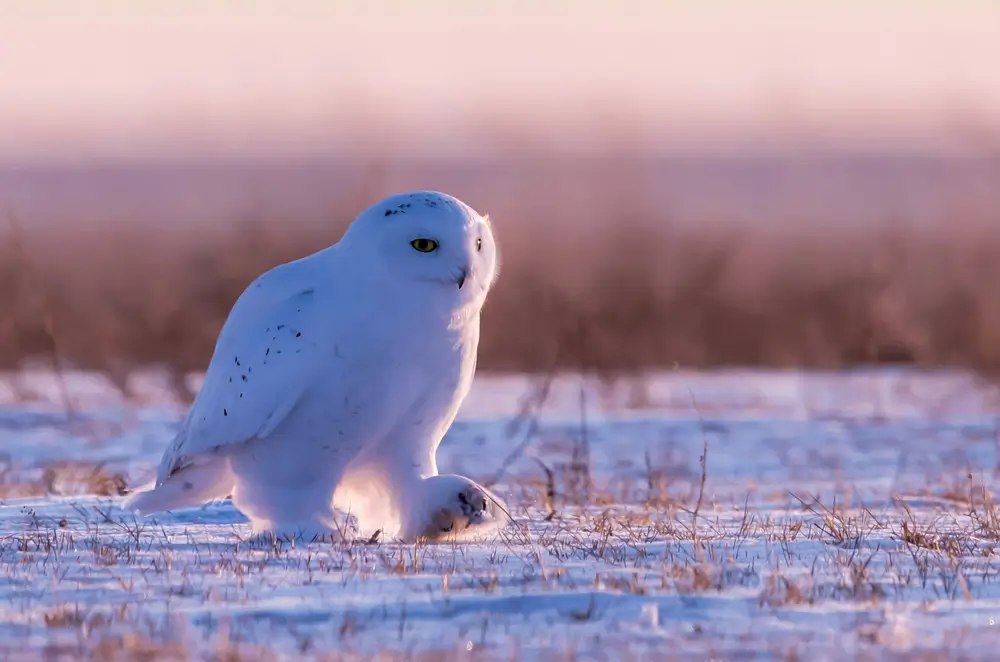
| General Characteristic | Feature Specific to Snowy Owl |
| Scientific Name | Bubo scandiacus |
| Size | 20-28 inches in length |
| Wingspan | 4.2-4.8 feet wide |
| Weight | 3.5 to 6.5 pounds |
| Color | Mostly white with black or brown spots (females have more spots) |
| Diet | Small mammals like lemmings, rabbits, and birds |
| Lifespan | Up to 10 years in the wild |
| Speed | Can fly up to 50 mph |
Interesting Features about Snowy Owls
There are many interesting things about these owls but some genuinely grab the attention of public
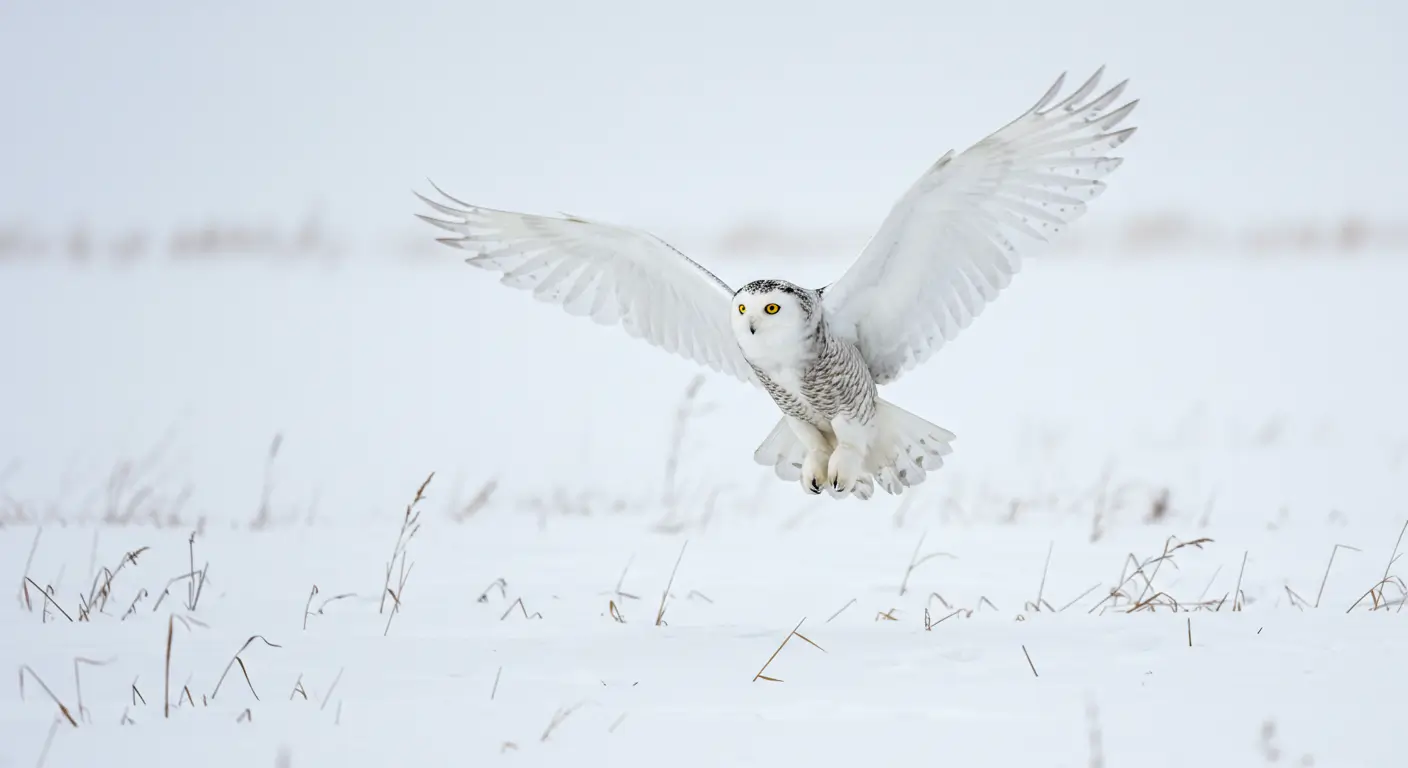
1. Masters of Silent Flight
Snowy owls have special edged feathers that muffle sound which allows them to hunt in complete silence.
2. Can Travel Thousands of Miles
Some snowy owls migrate from the Arctic to as far south and cover vast distances each year.

3. Males Get Whiter with Age
Young snowy owls have dark spots, but adult males turn almost pure white as they grow older.
4. Hunting in Daylight
Snowy owls are active during the day in the early morning and late afternoon unlike their other family members.
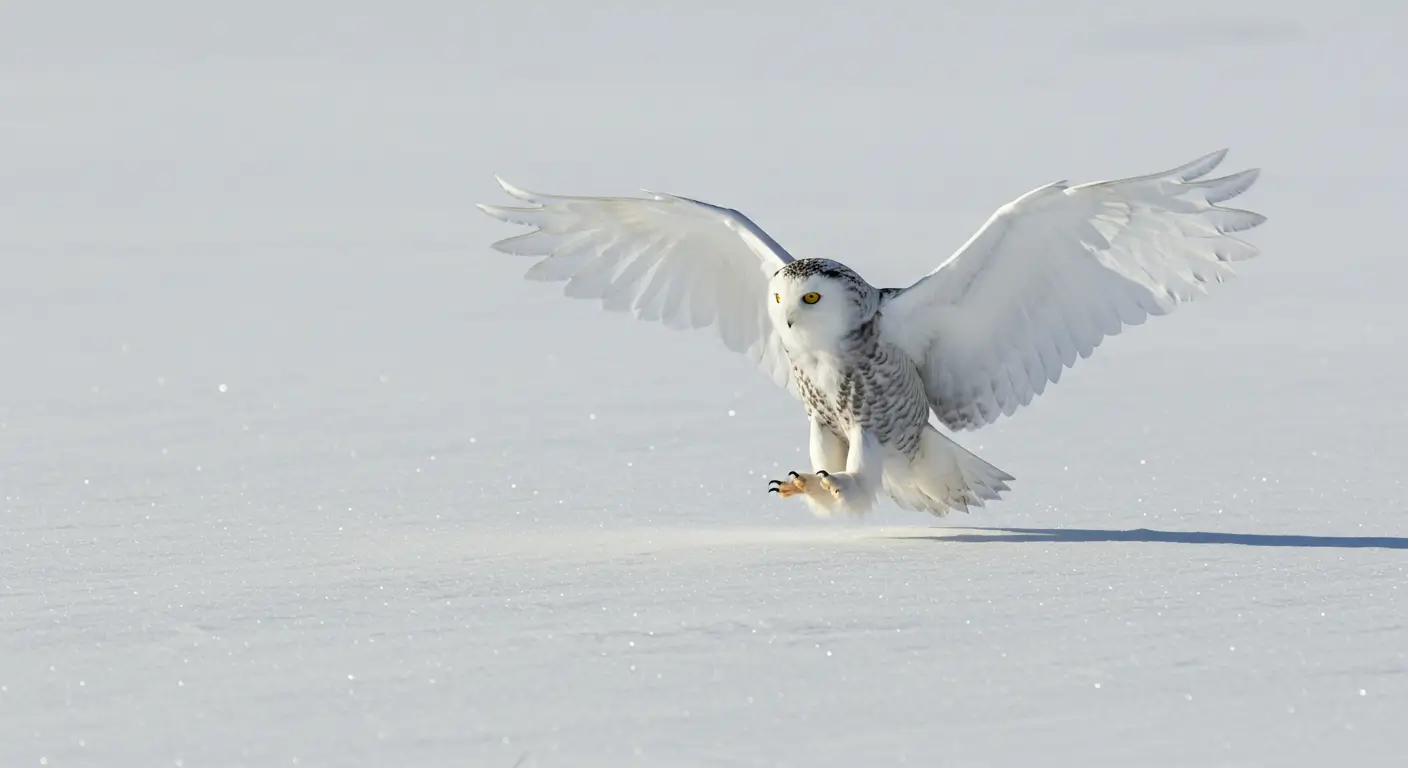
5. Females Stay Speckled for Life
Female snowy owls keep their dark markings throughout their lives for better camouflage.
6. Can Survive Extreme Cold
Their thick and insulating feathers cover their entire body which helps them to survive brutal winters.

7. Highly Territorial and Fierce Defenders
Snowy owls aggressively defend their nests and even attack large animals who get too close.
8. Can Spot Prey from Half a Mile Away
They can detect small animals moving in the snow from an incredible distance with their sharp eyesight.
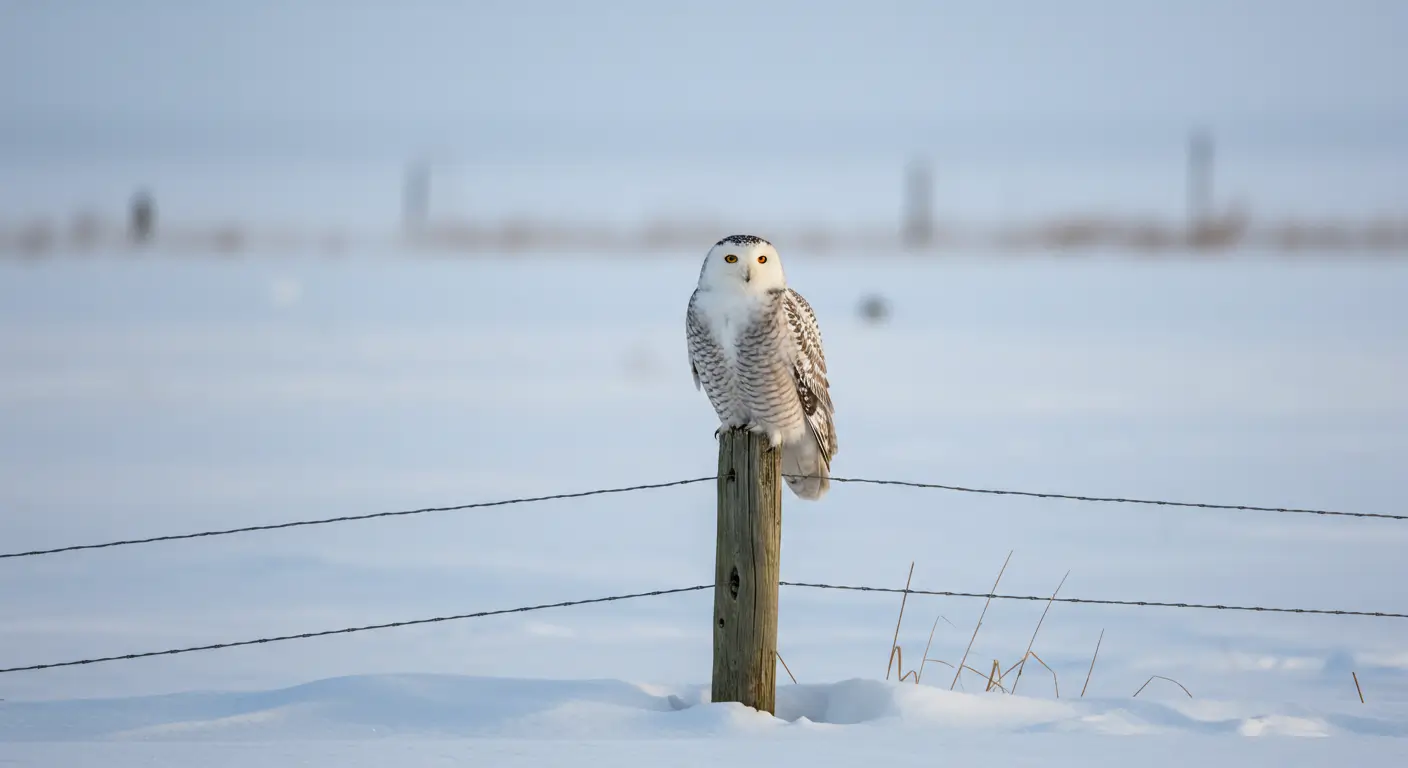
9. Eat Up to 1,600 Lemmings a Year
A single snowy owl can consume several lemmings daily which makes these rodents an important part of their diet.
10. They Sometimes Nest on the Ground
Snowy owls lay their eggs directly on the open tundra unlike most owls that prefer trees. They rely on visibility for protection of the eggs.
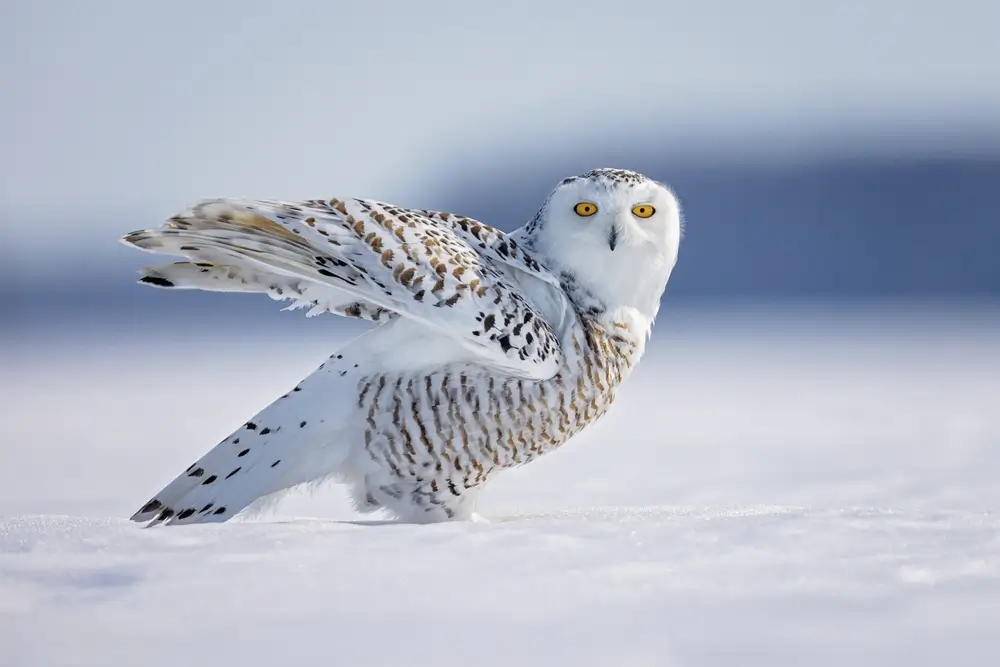
11. Wingspan Can Reach Over 5 Feet
Snowy owls have impressively large wings which helps them glide effortlessly over vast open landscapes.
12. They Can Hover in the Air
These owls can hover in place like a kestrel which makes them exceptional hunters even in strong winds.

13. They Have a Low and Deep Hoot
Snowy owls produce deep and resonant hoots that can travel far unlike other owls with high-pitched calls.
14. They Are a Symbol of the Arctic Wilderness
Snowy owls represent the rugged beauty of the frozen tundra as one of the most iconic birds of the far north.
Sightseeing of Snowy Owl
These owls offer quite rare sightseeing because of their habitat and flying habits, but here are some places where they can be seen.
There are certain tips to keep in mind before capturing the pics of these iconic birds. Ending Remarks These owls are a great example of the Arctic beauty of nature and present the natural environment’s beauty in a great way. These owls behave in an opposite manner compared to other members of the owl family. This unique behavior separates them from other species of the same kind and makes them a piece of interest for people. Where do Snowy Owls live in the USA? Snowy Owls are mainly found in the northern states during winter in open fields and coastal areas like the Great Lakes and New England. What do Snowy Owls eat? Their diet mainly consists of small mammals like lemmings, rabbits, and sometimes birds. Are Snowy Owls active at night or during the day? They are active during the day unlike most owls, especially at dawn and dusk. Why do Snowy Owls migrate to the USA? They move south from the Arctic when food is scarce, usually in winter. Is it illegal to own a Snowy Owl in the USA? Yes, they are protected under the Migratory Bird Treaty Act which makes it illegal to own one.
Location for Sightseeing
State in which it is Located
Barnegat Lighthouse State Park
New Jersey
Parker River National Wildlife Refuge
Massachusetts
Sachuest Point National Wildlife Refuge
Rhode Island
Montrose Point Bird Sanctuary
Illinois
Whitefish Point
Michigan
Sax-Zim Bog
Minnesota
Boundary Bay (near Bellingham)
Washington
Salish Sea Region
Washington
Duluth Harbor
Minnesota
Amherst Island (near Buffalo)
New York
Edwin B. Forsythe National Wildlife Refuge
New Jersey
Milwaukee’s Lakefront
Wisconsin
Norman Bird Sanctuary
Rhode Island
Erie Lake Shoreline
Pennsylvania
Long Island Beaches
New York
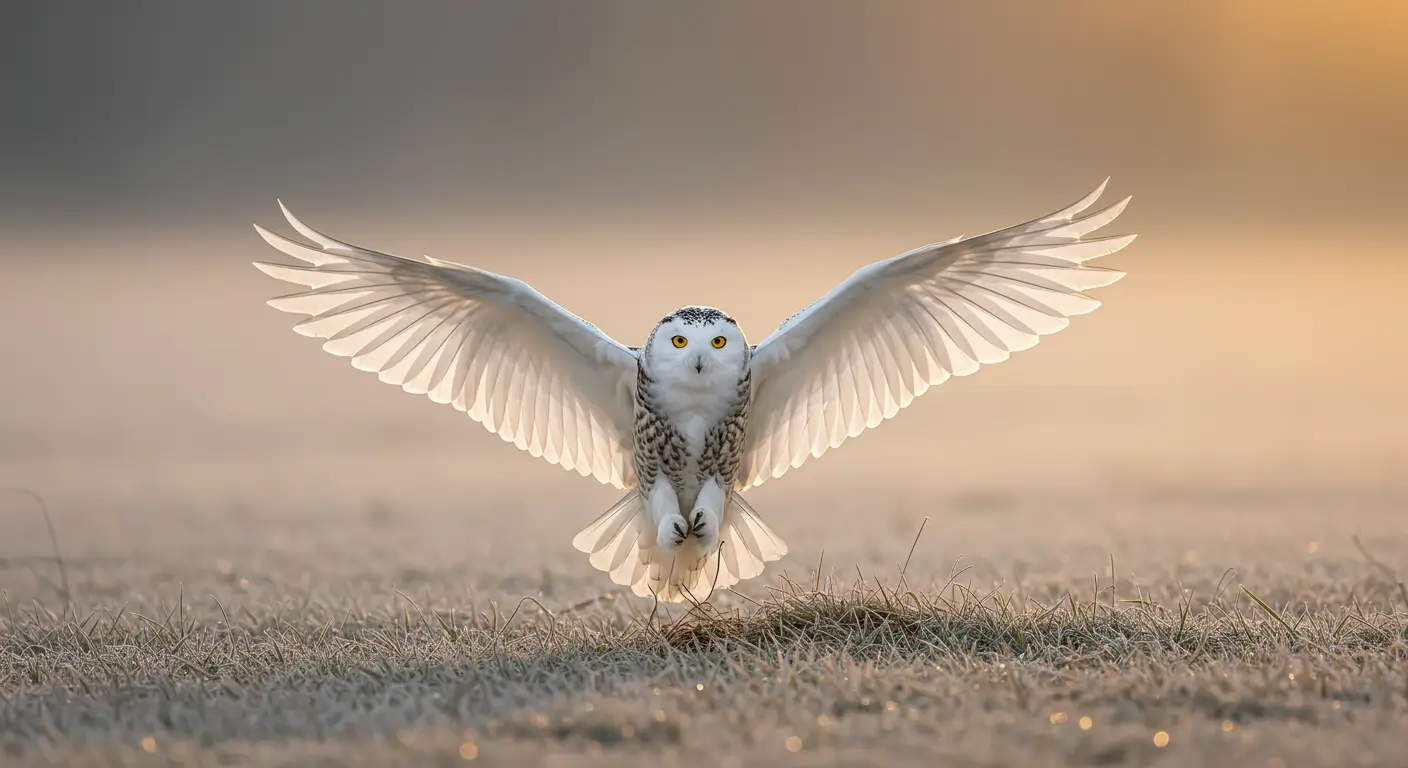
Snowy Owl Images
Photography Tips for Capturing These Birds
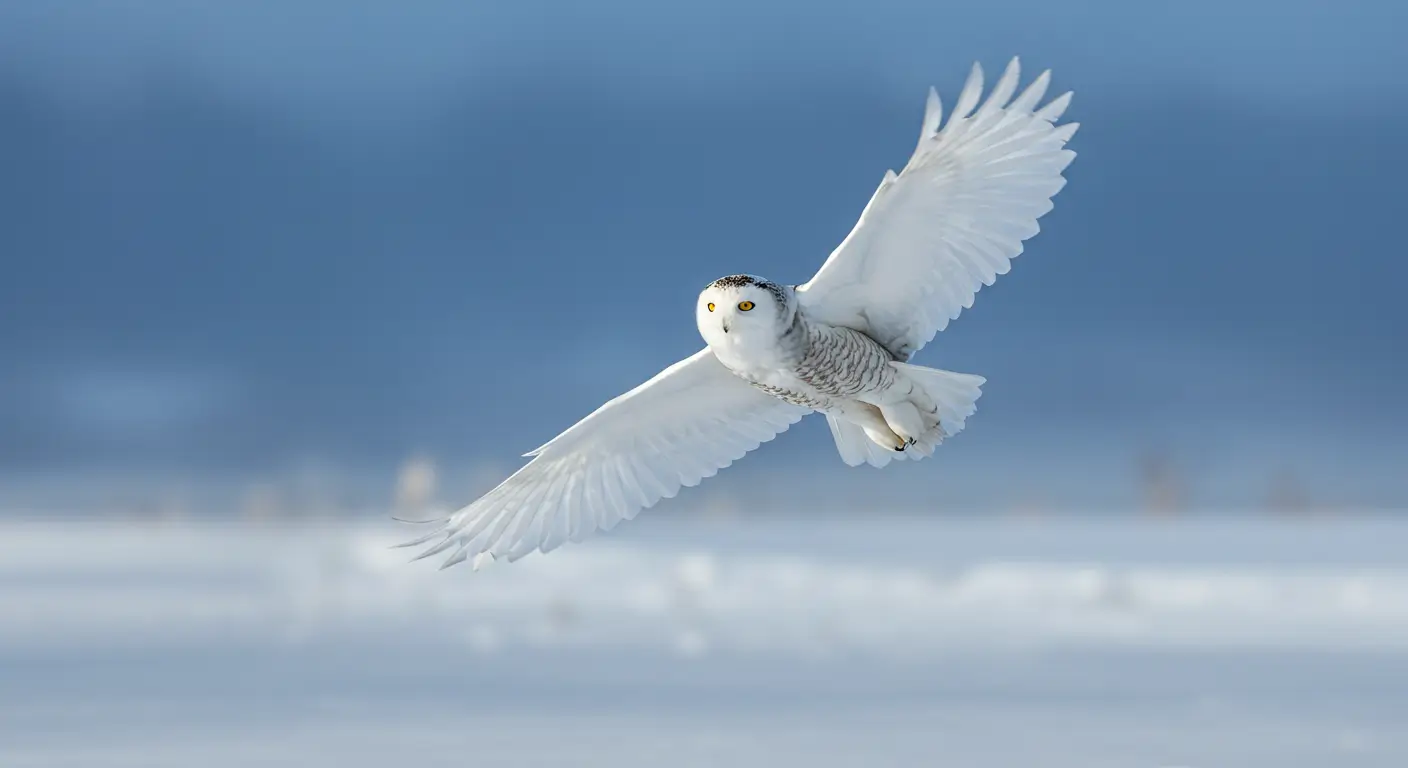

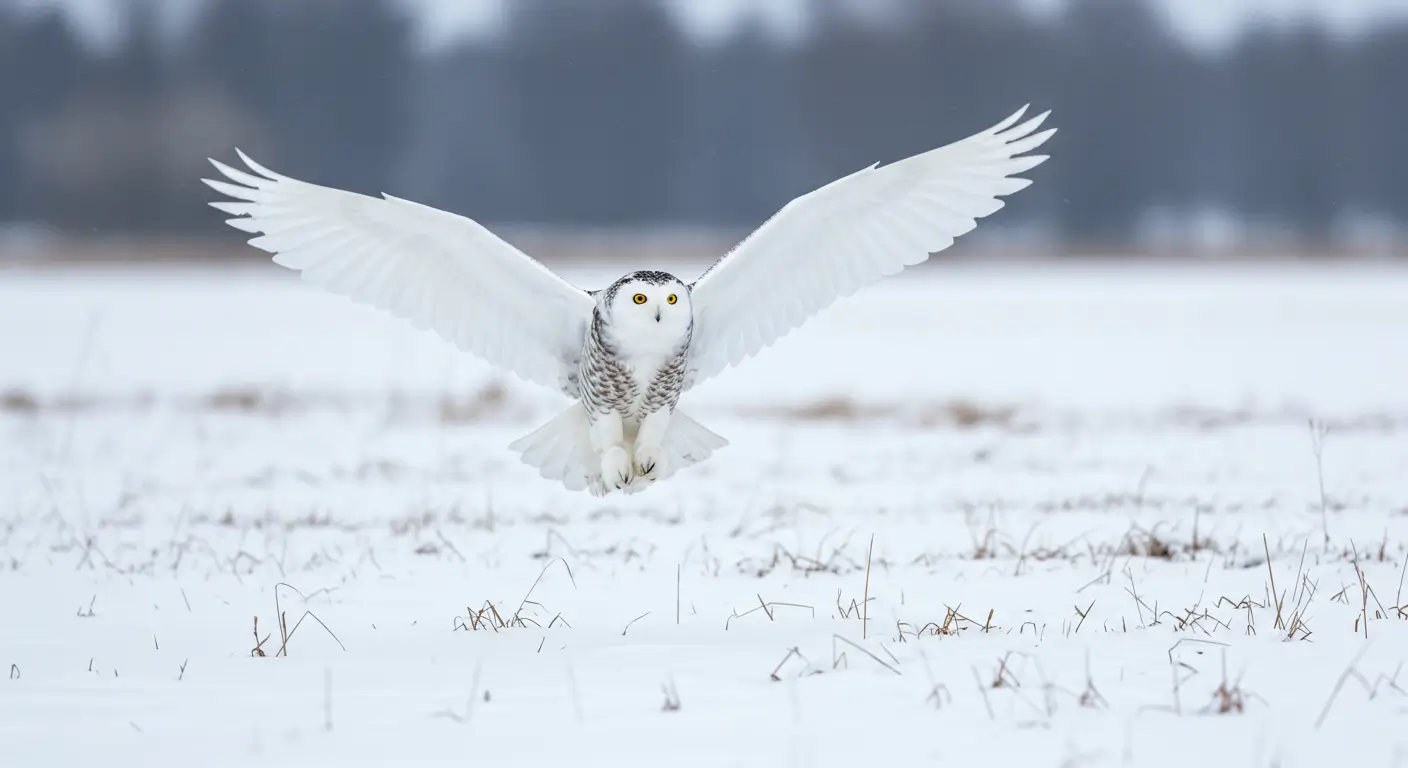
FAQs

